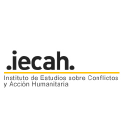WORKING WITH DG ECHO AS AN NGO PARTNER | FPA 2014 - 2020
7. COORDINATION
1. General information
2. Humanitarian organisation in the area
3. Needs assessment and beneficiaries
4. Logic of intervention
5. Quality markers
6. Implementation
7. Coordination
8. Monitoring and evaluation
9. Visibility
10. Financial overview of the action
11. Request for derogation
12. Administrative information
13. Conclusions and humanitarian organisation’s comments
Logframe Overview
7.1 OPERATIONAL COORDINATION WITH OTHER HUMANITARIAN ACTORS
In this section, the partner will provide information on its participation in national and local coordination fora and on the coordination with other humanitarian organisations.
It is important to note that for some operational contexts, the coordination aspects are essential appraisal criteria. If this is the case, it will be clearly mentioned in the HIPs.
In cases where the partner does not participate in coordination mechanisms, it will have to provide some explanation in this section.
ECHO is a strong supporter of the Inter Agency Standing Committee’s Transformative Agenda (ITA) that aims at improving the effectiveness and cost efficiency of international humanitarian response.
Partners should make every effort to ensure they contribute to a coordinated humanitarian response by:
-
engaging in meetings/discussions of coordination mechanisms such as the HCT, clusters or other dedicated coordination systems
-
engaging fully in the Humanitarian Programme Cycle, including participation in contingency planning, coordination of assessments, and collective analysis,
-
contributing to the monitoring and evaluation of the collective action
-
ensuring that the funding received from ECHO are employed to the maximum extent possible in fostering such coordinated response.
7.2 ACTION LISTED
When applicable, the partner will identify the appeals where the action is listed.
7.3 COORDINATION WITH NATIONAL AND LOCAL AUTHORITIES
In this section, the partner will briefly explain the type of relationship and coordination modalities that will prevail with national and local authorities during the implementation, or explain when this is not considered appropriate or relevant.
When applicable and in line with the resilience strategy, the partner will explain how the Action informs and influences relevant government plans or strategies.
7.4 COORDINATION WITH DEVELOPMENT ACTORS AND PROGRAMMES
In this section, the partner will address the issues of transition, LRRD, exit strategy and resilience. The partner will describe, when relevant, how the Action complements on-going development actions or programmes, how synergies are enhanced and contradictions avoided.
This section will also explain how this coordination with development interventions will increase the sustainability of the results achieved after the end of the ECHO funded action and how the phasing out will be done.
The partner will also explain what are the concrete coordination mechanisms put in place in order to enhance synergies and complementarities between the Action and relevant development interventions.
The partner will further indicate how the current action will contribute to addressing the root causes of vulnerabilities of the target population.






